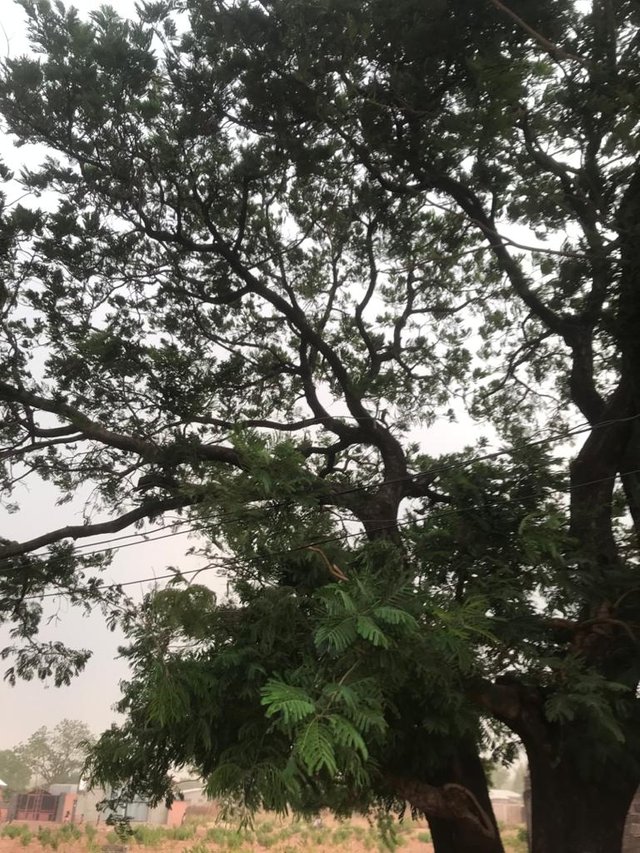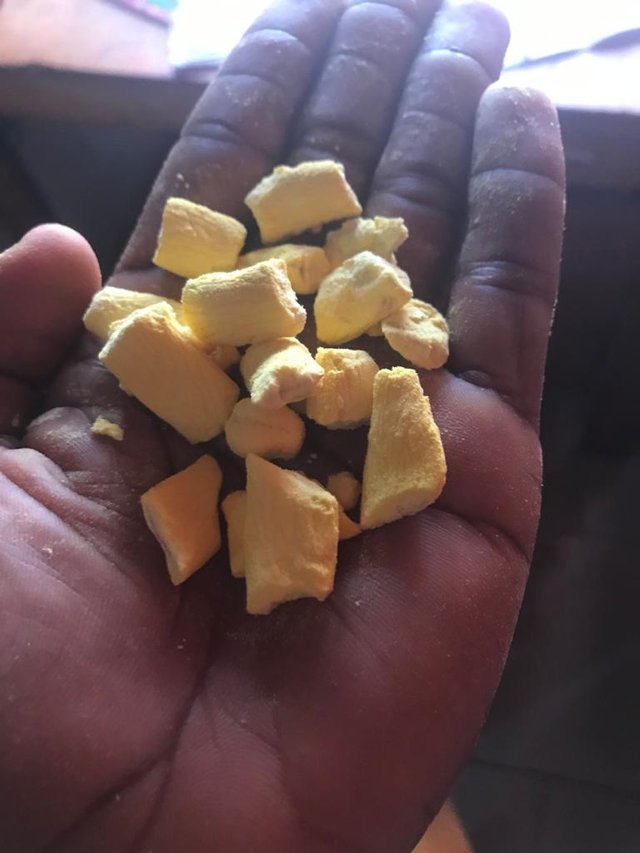THE STEEM PLANT CONTEST WEEK 9 : THE AFRICA LOCUST BEAN PLANT -09-04-21
Greetings, everyone! This is my Steem Plant Contest entry for week 9.
I am @massachussets, i reside in a city called Tamale in the Norther region of Ghana. Northern region is one of the regions that record least rainfalls every year so most plants font survive here due to lack of water for them. Even with this challenge, there are a few plants that survive the preesure and trauma. A few i can mention is the African locus bean tree which is popularly know as Dawadawa, baobab and many more. In this article i would like to share my insights on the THE AFRICAN LOCUST BEAN.
Dawadawa is a small medium-sized plant that can be shaped into a variety of shapes, including flat patties and spheres. The lumpy, black paste-like spheres have a slightly sticky texture and are made from fermented locust beans. Locust beans are harvested from inedible, dark brown pods measuring 30-40 centimeters in length, which contain an edible, delicate, and sweet yellow pulp before being fermented.
.jpeg)
Me standing just beneath it
Up to thirty seeds can be found in the pulp, and these seeds are processed to make the black flavoring. Dawadawa has a pungent odor similar to stinky cheese and a musky, umami taste with traces of cocoa until fermented.

A view of the Dawadawa tree
Dawadawa is an all year-round plant
Parkia biglobosa, also known as the African locust bean tree, is a deciduous, wide-spreading plant that can grow up to twenty meters in height and is a member of the Fabaceae family. Dawadawa is a flavoring made from the seeds of the African locust bean tree.
The bark, leaves, pods, and seeds of the tree are all used in Western Africa for culinary and medicinal purposes, with the seeds being the most important due to their nutritional value. To make Dawadawa, the seeds are separated from the pulp and boiled, then coated in ash and pounded, sun-dried, and then sent through a hand-cleaning process before being cooked again to create a sticky fermented mixture.

Seeds of African locust bean tree which can be eaten raw to curb hunger
Dawadawa is a pungent, umami-flavored spice that is common in Western Africa for its ability to add depth to soups, stews, and rice dishes.The seeds are very high in calcium, fats, and protein, as well as vitamin C, phosphorus, and potassium.
Dawadawa is a seasoning that is used to improve the taste of cooked foods. For added spice, the black cakes or spheres can be quickly separated into pieces and tossed into soups or stews. They can also be used to spice rice, noodle, curry, and casserole dishes.
The African locust bean, which is commonly used to season conventional soups, has also shown promise in improving cellular immunity in immune-compromised people and in the treatment of diarrhoea, diabetes, and heart attacks. It may also be used as a snake bite antidote.
Dawadawa is historically used to season okra soup, palm nut soup, bitter-leaf soup, melon soup, and alefu soup in Western Africa. It's also in dishes like fakoye, a braised chicken dish, and jollof, a rice dish with minced beef, tomatoes, bell pepper, garlic, and ginger. Dawadawa is available in a variety of forms, including patties and spheres, as well as dried powder that can be sprinkled on top of dishes for umami taste.
Dawadawa goes well with lamb, beef, and poultry, as well as fried rice and spices like cinnamon, rosemary, nutmeg, cloves, tomatoes, garlic, onions, and ginger. When stored in a cold, dry place, the spheres can last for many months.
Although not widely available outside of Africa, Dawadawa is an important part of local and regional trade within the continent, as it is primarily prepared by women to support their families.
Dawadawa is primarily used in northern Ghana, but as traders moved south and east to sell the flavoring, more families in other parts of the country started to make the spheres, spreading Dawadawa's popularity. A red chile pepper and a local herb known as nuha nua are put on top of the Dawadawa to shield it from spirits while being transported to market. Since it is believed that spirits are said to hate spicy peppers, the Dawadawa will be unaffected and ready to be sold.
The dawadawa tree is native to Africa, with populations ranging from Senegal's Atlantic coast to Ghana, Cote d'Ivoire, Benin, Nigeria, and parts of Southern Sudan and Northern Uganda. The process of fermenting seeds to make Dawadawa dates back to the 14th century, and Dawadawa is still made by individual families and sold in local markets throughout Sub-Saharan Africa..
Hey! Thank you very much for the story and acquaintance with this wonderful Dawadawa tree :)
Thanks so much for this contest